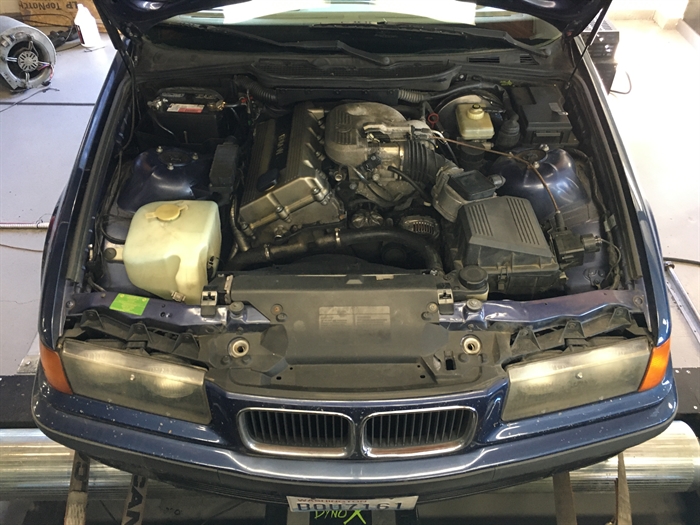Key Attributes to Search For When Investing In an Engine for Automotive Applications
When thinking about the purchase of an engine for auto applications, several essential functions require careful analysis to ensure optimum performance and performance. From power and performance capabilities to fuel efficiency, adherence, and sturdiness to exhausts criteria, each facet plays a critical role in figuring out the engine's suitability for details automotive demands. Additionally, cost-effectiveness stays a pivotal consider the decision-making process, balancing quality with monetary considerations. These attributes collectively add to the general performance and integrity of the engine, influencing the driving experience and lasting complete satisfaction of the individual.
Power and Performance
When selecting an automotive engine, customers focus on power and performance to ensure optimal driving experience and performance. A well-performing engine not just supplies power effectively however additionally runs smoothly across different rate arrays and driving problems.
Buyers frequently think about the engine's torque result along with its power rating. Torque, determined in pound-feet (lb-ft) or Newton-meters (Nm), reflects the engine's rotational force, affecting the lorry's ability to tow, climb inclines, and increase from grinding halt. An equilibrium between power and torque is critical for attaining a receptive and versatile driving experience. Additionally, factors such as engine variation, crossbreed, and turbocharging modern technologies play significant roles in enhancing both power and efficiency levels. Eventually, picking an engine that provides a potent mix of power and performance guarantees a satisfying and effective driving experience. bmw 318ti.
Fuel Efficiency
Optimizing gas efficiency is an extremely important consideration for customers when evaluating vehicle engine options. Modern engines with functions like straight gas shot, turbocharging, and variable shutoff timing can considerably enhance fuel efficiency by enhancing combustion procedures and reducing energy loss.

Durability and Dependability
Accomplishing long-lasting performance and trustworthy operation is vital for consumers reviewing the toughness and dependability of vehicle engines. When considering an engine for automobile applications, toughness describes the engine's capability to withstand wear, stress, and severe operating problems over an extensive period. Reliability, on the other hand, suggests that the engine can regularly do its designated function without unexpected failures or failures.
Consumers should look for engines constructed with high-quality materials and precise engineering to make sure longevity. Parts such as bearings, pistons, and crankshafts must be resilient to deal with the engine's power outcome without premature wear. Furthermore, engines geared up with sophisticated air conditioning systems, effective lubrication, and robust purification devices tend to find more information exhibit higher levels of integrity.
Regular upkeep and adherence to supplier recommendations are also critical consider maintaining an engine's longevity and reliability. By following maintenance schedules, utilizing recommended fluids, and resolving any type of concerns without delay, consumers can make best use of the life-span and performance of their vehicle engines. Ultimately, prioritizing resilience and reliability in engine option can cause an extra satisfying possession experience with less unforeseen disturbances.
Emissions Compliance
Making certain conformity with emissions regulations is an important aspect of evaluating automotive engines for ecologically aware customers. With increasing problems concerning air top quality and environmental impact, stringent emissions requirements have actually been established globally to minimize damaging pollutants released right into the atmosphere. When purchasing an engine for vehicle applications, it is vital to consider its exhausts conformity to minimize the carbon footprint and follow lawful demands.
Modern engines are outfitted with sophisticated discharge control technologies such as catalytic converters, exhaust gas recirculation (EGR) systems, and careful catalytic reduction (SCR) to minimize hazardous exhaust gases like nitrogen oxides (NOx), carbon monoxide gas (CARBON MONOXIDE), and hydrocarbons (HC) These systems play an important duty in making sure that the engine fulfills the defined discharges standards and operates within allowable limitations.

Cost-effectiveness
When thinking about auto engine acquisitions, reviewing cost-effectiveness is paramount for consumers looking for both performance and worth. It includes the overall expenses related to maintenance, fuel intake, and potential repair services over the engine's life-span.
One trick aspect of cost-effectiveness is fuel effectiveness. Engines that are designed to make the most of fuel economic climate can result in substantial cost savings gradually, specifically for people that drive frequently or over fars away. Additionally, thinking about the schedule and affordability useful reference of extra components and servicing can add to the total cost-effectiveness of an engine. Guaranteeing that repair and maintenance are available and practical can prevent unanticipated financial concerns down the line.

Final Thought
In verdict, when purchasing an engine for automobile applications, it is critical to think about vital features such as power and performance, gas resilience, performance and reliability, discharges compliance, and cost-effectiveness. These factors are important in ensuring that the engine meets the requirements of the lorry and runs properly in various driving problems - bmw 318ti. Making a notified decision based upon these standards will eventually bring about a successful and reliable auto engine purchase
From power and performance capabilities to sustain effectiveness, adherence, and toughness to exhausts standards, each element plays a critical duty in determining the engine's viability for specific auto requirements. Engines created to run on different gas such as electric power, crossbreed systems, or biofuels can provide enhanced fuel economic climate and reduced emissions contrasted to conventional fuel or diesel engines. Customers ought to meticulously consider the fuel performance scores and innovations included into vehicle engines to make informed investing in decisions that align with their priorities for price financial savings and sustainability.
When considering an engine for automotive applications, resilience refers to the engine's capacity to endure wear, anxiety, and rough operating problems over a prolonged period.In conclusion, when buying an engine for auto applications, it is critical to consider key attributes such as power and performance, fuel dependability, effectiveness and longevity, discharges compliance, and cost-effectiveness.
Comments on “BMW 318ti: Where to Find the Best Offers on Components and Accessories”